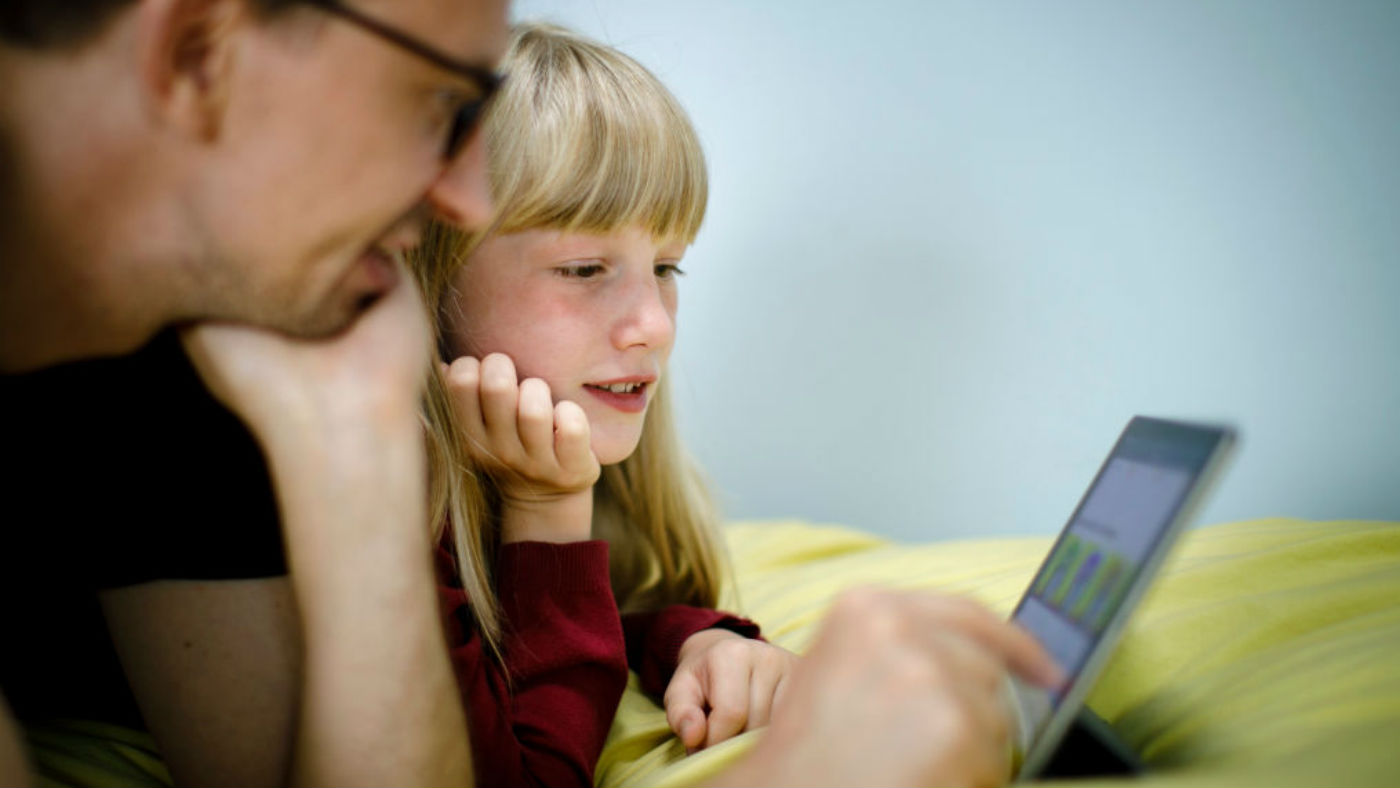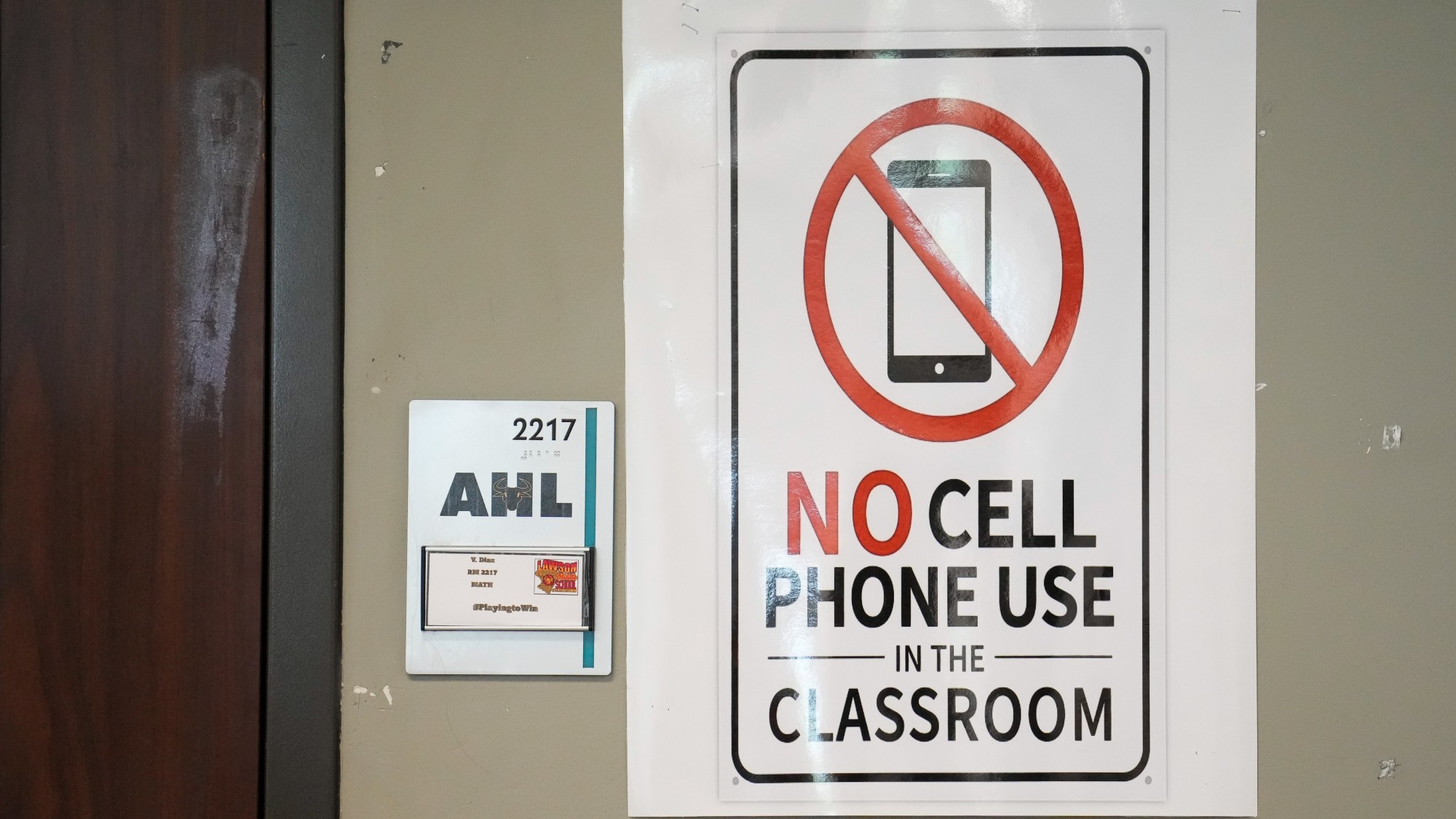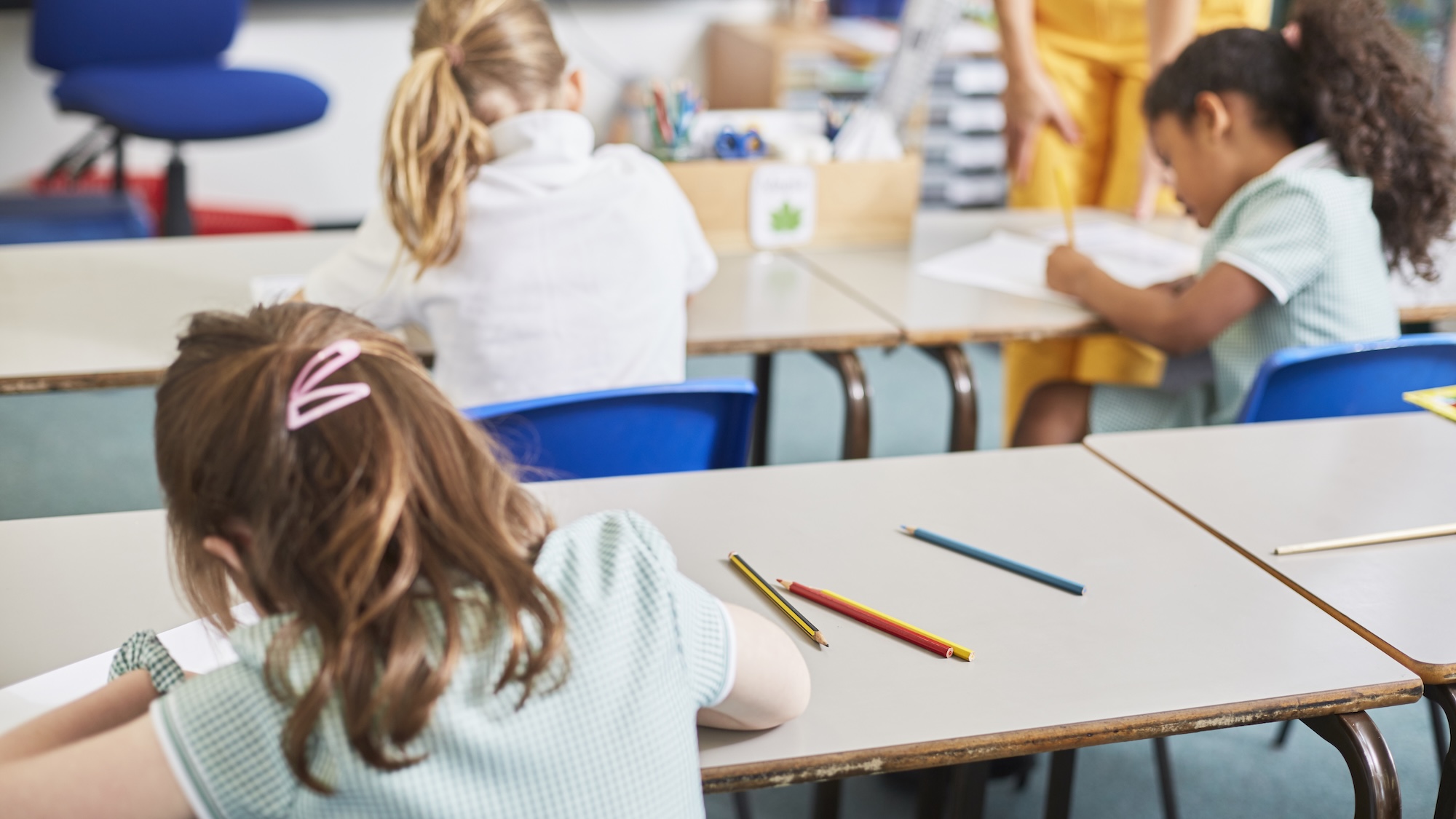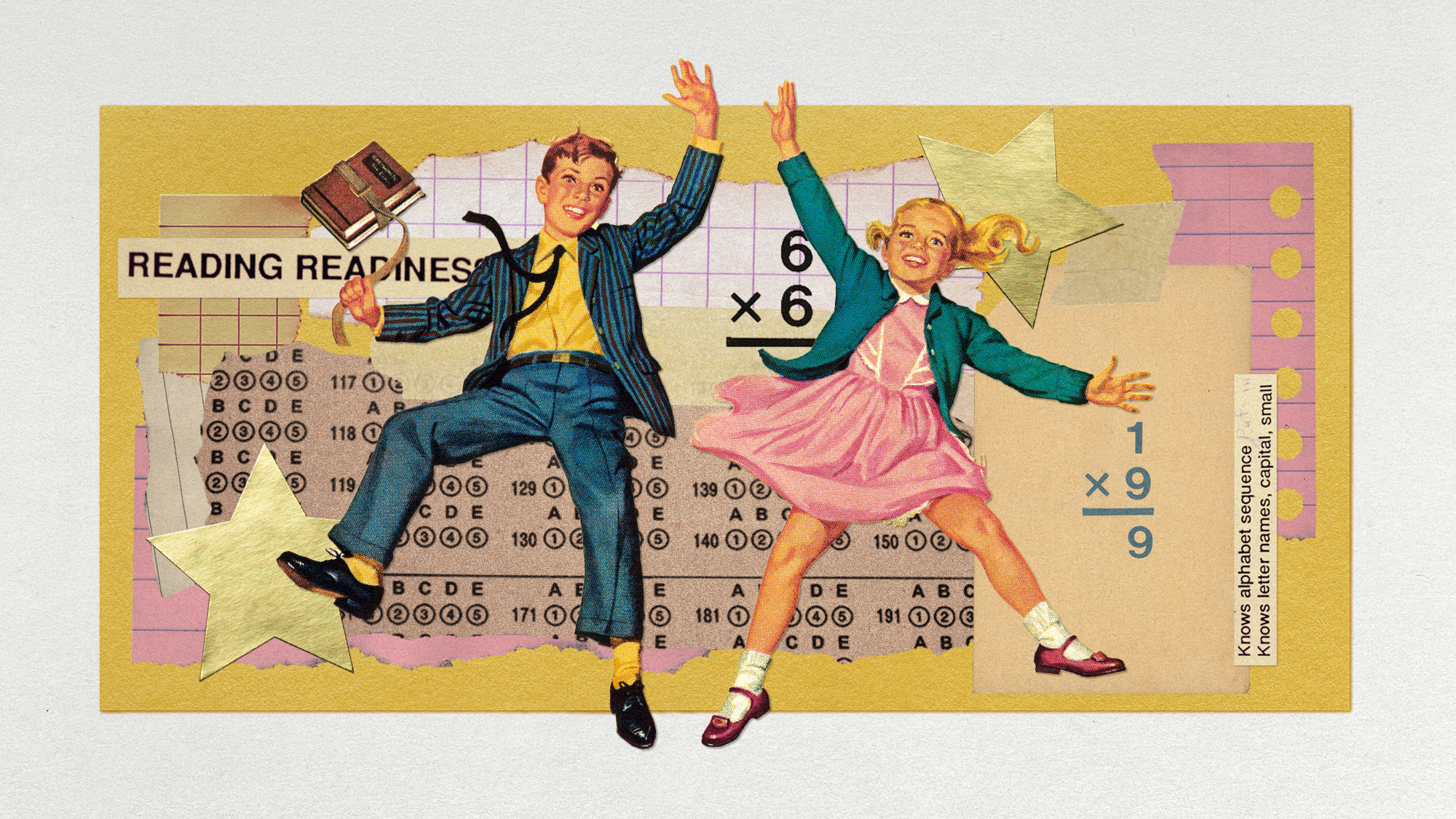Pros and cons of homeschooling
The government has set out plans to register all children educated at home

A free daily email with the biggest news stories of the day – and the best features from TheWeek.com
You are now subscribed
Your newsletter sign-up was successful
The Government is planning to compile a register of all homeschooled children in England.
Under the proposals, which will be subject to a 12-week consultation, “it will be parents’ responsibility to register their child if they are not being taught in a state-funded or registered independent school”, reports The Guardian.
The number of children being educated outside the school system has risen sharply in recent years. In 2018, 57,783 children were being homeschooled, according to an analysis of local education authority registers by the Association of Directors of Children’s Services - a rise of 27% from 2017.
The Week
Escape your echo chamber. Get the facts behind the news, plus analysis from multiple perspectives.

Sign up for The Week's Free Newsletters
From our morning news briefing to a weekly Good News Newsletter, get the best of The Week delivered directly to your inbox.
From our morning news briefing to a weekly Good News Newsletter, get the best of The Week delivered directly to your inbox.
Government ministers say a mandatory nationwide register would help at-risk children by making it easier for councils to intervene if educational standards are not met.
According to the BBC, the move is likely to upset some parents, but Education Secretary Damian Hinds believes it is the government’s duty to ensure children are receiving a proper education.
Announcing the plans, Hinds said: “As a government, we have a duty to protect our young people and do our utmost to make sure they are prepared for life in modern Britain.
“That’s why this register of children not in school is so important – not to crack down on those dedicated parents doing an admirable job of educating their children in their own homes, but to prevent vulnerable young people from vanishing under the radar.”
A free daily email with the biggest news stories of the day – and the best features from TheWeek.com
But what are the pros and cons of homeschooling?
Pros
- As there is no state curriculum that you’re required to follow when homeschooling - although some home educating parents choose to do so anyway - parents have freedom to decide what to teach their children and when. This means “there’s far more scope for encouraging children to follow their own interests, whatever they may be,” says home education advocate and author Sue Fairhead.
- Another positive highlighted by those that practice homeschooling is the transient nature of the classroom meaning that learning can take place at any time and in any place, with the wider world acting as an extension of the classroom. A homeschooled child “can learn about geology at the seaside, chemistry in the kitchen and biology at a wildlife centre”, says the Good Schools Guide.
- The absence of a formal structure means that homeschooled students be involved in directing their own learning. A growing movement called unschooling frames children as the leaders of their education with parents working as support. This means the child will learn at their own pace instead of that of their class, and develop their sense of independence, resourcefulness and responsibility.
- Home schooling can also be a positive choice for children who would find learning in a normal classroom environment more challenging than most, whether it be because of bullying, social anxiety, learning difficulties or a host of other issues.
Cons
- Critics of homeschooling warn that untrained teaching and lack of a set curriculum means that homeschooled children could end up with gaps in their education which would be problematic if they wanted to reintegrate into the school system at a later point. Lack of exam preparedness can also impede their chances of university admission.
- Children can miss out socially by not learning around peers. The Good Schools Guide emphasises the importance of ensuring that home educated children form outside friendships and join clubs with regular meetings.
- For many families, one parent leaving employment to educate their children at home represents a huge commitment of time and finances.
- Some parents who want to withdraw their children from mainstream schooling but are unable to provide an education themselves “turn instead to the use, during the school day, of a variety of unregulated settings such as part-time alternative provision or unregistered independent schools”, says the Department for Education. These institutions are not subject to any oversight to ensure they meet any educational or safeguarding standards.
-
 ‘This is something that happens all too often’
‘This is something that happens all too often’Instant Opinion Opinion, comment and editorials of the day
-
 House votes to end Trump’s Canada tariffs
House votes to end Trump’s Canada tariffsSpeed Read Six Republicans joined with Democrats to repeal the president’s tariffs
-
 Bondi, Democrats clash over Epstein in hearing
Bondi, Democrats clash over Epstein in hearingSpeed Read Attorney General Pam Bondi ignored survivors of convicted sex offender Jeffrey Epstein and demanded that Democrats apologize to Trump
-
 The pros and cons of banning cellphones in classrooms
The pros and cons of banning cellphones in classroomsPros and cons The devices could be major distractions
-
 School phone bans: Why they're spreading
School phone bans: Why they're spreadingFeature 17 states are imposing all-day phone bans in schools
-
 Schools: The return of a dreaded fitness test
Schools: The return of a dreaded fitness testFeature Donald Trump is bringing the Presidential Fitness Test back to classrooms nationwide
-
 Send reforms: government's battle over special educational needs
Send reforms: government's battle over special educational needsThe Explainer Current system in 'crisis' but parents fear overhaul will leave many young people behind
-
 Education: Can public schools be religious?
Education: Can public schools be religious?Feature A Supreme Court seems ready to rule in favor of religious charter schools in Oklahoma, which could reshape public education
-
 America's academic brain drain has begun
America's academic brain drain has begunIN THE SPOTLIGHT As the Trump administration targets universities and teachers, educators are eying greener academic pastures elsewhere — and other nations are starting to take notice
-
 Schools' Send crisis: how can it be fixed?
Schools' Send crisis: how can it be fixed?Today's Big Question Government urged to reform support for children with special educational needs and disabilities and save councils from bankruptcy
-
 Unschooling: the radical education trend raising eyebrows
Unschooling: the radical education trend raising eyebrowsUnder the radar Some parents are letting their children lead their education